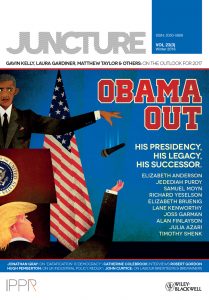How do refugee organizations communicate about forcibly displaced people?
© DFID – UK Department for International Development published under Creative Commons License (CC BY-NC-ND 2.0) http://bit.ly/33MnkXX 70.8 million. That is the enormous number of people who were forcibly displaced worldwide at the end of 2018. Many of them are confronted with hostility, xenophobia and/or increasingly popular far-right movements.[1] While states have the basic legal responsibility to protect and assist these displaced people,[2] in recent decades, several states worldwide have implemented increasingly restrictive asylum policies.[3] In protecting refugees’ rights and...



















1540-6210/asset/society_affiliation_image.gif?v=1&s=812a48e1b22880cc84f94f210b57b44da3ec16f9)
1467-7660/asset/DECH_right.gif?v=1&s=a8dee74c7ae152de95ab4f33ecaa1a00526b2bd2)